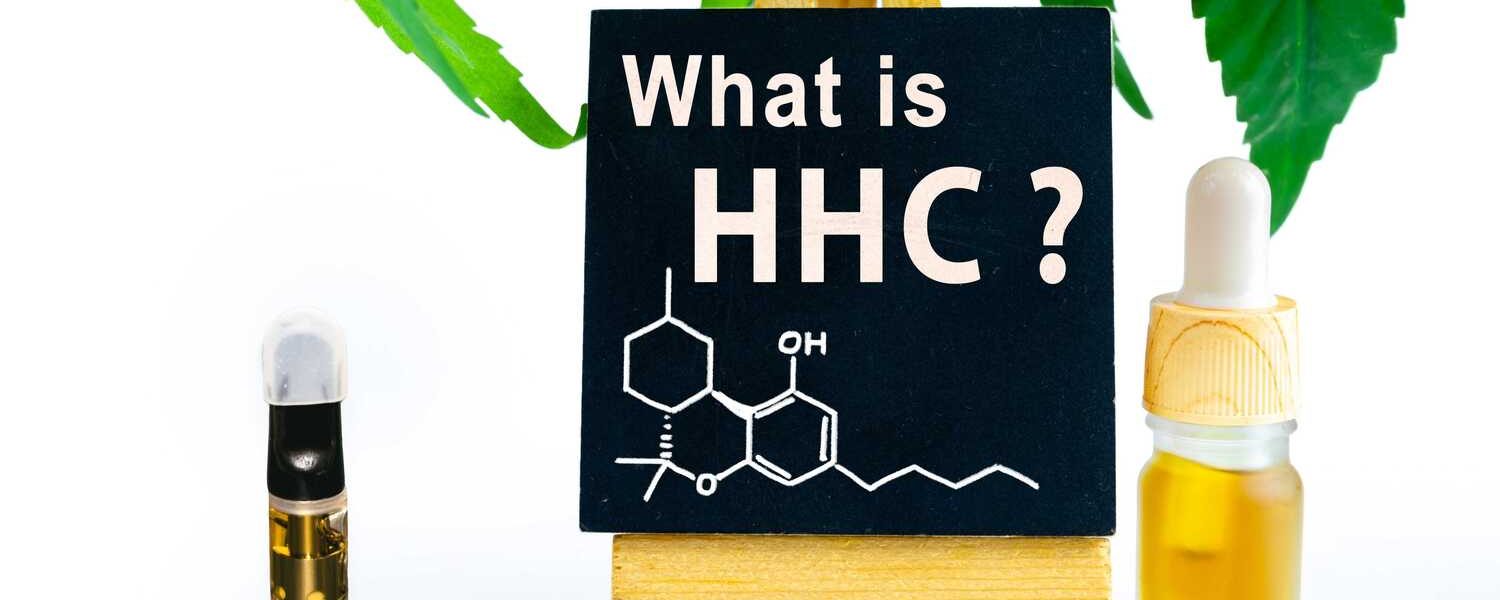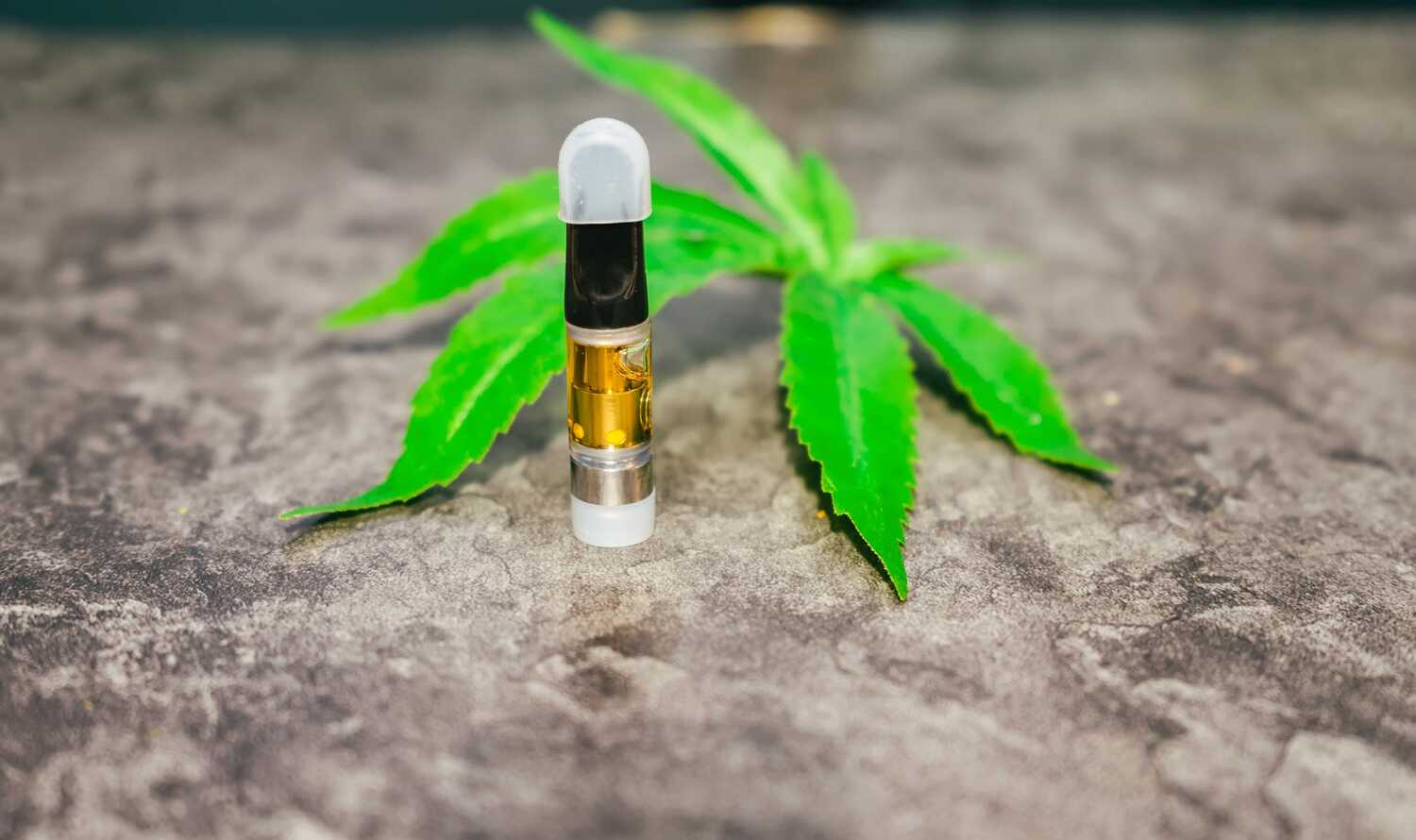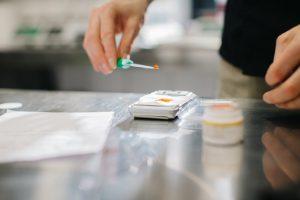- Jake Peter
- Published: March 4, 2024
- Fact-checked by Dr. Desiree Granados

Tetrahydrocannabiphorol, more commonly known as THC-P, is rapidly capturing the curiosity of cannabis enthusiasts and researchers alike. This newly discovered cannabinoid promises a unique and potent experience that is setting the cannabis community abuzz.
But what exactly is THC-P, and how is it different from ordinary THC? In this article, we’ll explore the science behind THC-P, its potential benefits, its legal status, and why it might become a significant player in the future of cannabis products.
What Is THC-P?
THC-P, or tetrahydrocannabiphorol, is a naturally occurring cannabinoid found in the cannabis plant. Though it’s structurally similar to THC, the primary psychoactive compound in marijuana, THC-P is distinguished by its stronger potency.
Is THC-P Synthetic?
In essence, THC-P is a naturally occurring compound found in minute quantities within the cannabis plant. However, due to its scarcity, the THC-P available in the market is often synthesized in laboratories to produce a more substantial yield. This laboratory synthesis does not alter its basic chemical structure.
Is THC-P Indica or Sativa?
THC-P is found in the cannabis plant, but it’s not classified directly as indica or sativa. THC-P, like other cannabinoids such as CBD or THC, is a compound that can be extracted from indica, sativa, and hybrid cannabis plants.
How Strong is THC-P?
Research and anecdotal evidence suggest that THC-P is significantly more potent than THC. More specifically, it’s estimated that THC-P is about 30 times more potent due to its enhanced binding affinity to the brain’s CB1 receptor.
What Does THC-P Feel Like?
THC-P users often report an intense experience, with effects that include a profound sense of euphoria, heightened sensory perception, and deep relaxation. Some describe the sensation as enveloping, leading to a deeply immersive and blissful state.
However, due to its potency, THC-P is also associated with stronger psychoactive effects, which can be overwhelming for some, especially those new to cannabis use. It’s important for all users to approach THC-P with caution.

Is THC-P Safe?
The safety of THC-P is a topic of increasing interest and research within the scientific community. Initial studies and anecdotal evidence suggest that THC-P could have effects similar to those of more well-known cannabinoids, and that these effects could be both therapeutic and psychoactive.
However, due to THC-P’s relatively recent discovery and the limited scope of research conducted so far, comprehensive data on its long-term effects and safety profile are still emerging. Like with any potent compound, moderation and a cautious approach are recommended.
Is THC-P Legal?
In the United States, the legality of THC-P varies by jurisdiction.
Under the 2018 Farm Bill, hemp-derived products are federally legal as long as they contain less than 0.3% THC. However, some states have more stringent laws regarding psychoactive substances. Thus, while technically legal under federal law if derived from hemp, the specific legality of THC-P depends on each state’s respective interpretation of the Farm Bill.
What Are the Benefits of THC-P?
Some of the myriad benefits of THC-P include:
- Potent Psychoactive Effects: THC-P is known for its strong psychoactive properties, offering a more transportative experience compared to THC.
- Enhanced Therapeutic Potential: Preliminary research suggests that THC-P may have significant therapeutic benefits, including pain relief and anxiety reduction.
- Appetite Stimulation: Like THC, THC-P can stimulate the user’s appetite, which may be beneficial for individuals experiencing appetite loss due to medical conditions or their treatments.
- Improved Sleep: Some users report that THC-P improves their quality of sleep, making it a potential aid for those dealing with insomnia or sleep disturbances.
How Much THC-P Should I Take?
Determining the right dose of THC-P is crucial for a safe and enjoyable experience. Due to its potent nature, it’s recommended you start with a very low dose—significantly lower than what you might be accustomed to with THC. For beginners, a dose as small as one to two milligrams should suffice.
Remember–it’s always safer to start low and go slow, allowing ample time for the drug’s effects to manifest before considering whether to increase your dosage.
How Long Does THC-P Take to Kick In?
The onset time for THC-P can vary according to several factors, including the method of consumption and individual differences in metabolism and tolerance. However, on average, THC-P takes anywhere from 30 minutes to two hours to kick in. This timeframe is similar to that of other cannabinoids such as THC and CBD.
When consumed through smoking or vaping, THC-P can take effect within 15 minutes due to its rapid absorption into the bloodstream through the lungs. On the other hand, when consumed orally through edibles, it can take up to an hour for THC-P to take effect, as it must pass through the digestive system before being absorbed into the bloodstream.
How Long Does THC-P Last?
Users typically report that the duration of their THC-P high surpasses that of a THC high, lasting anywhere from one to eight hours depending on individual tolerance, the consumption method, and the amount consumed. This extended duration can be attributed to THC-P’s stronger affinity for cannabinoid receptors in the brain.
Can You Fail a Drug Test with THC-P?
Given its chemical similarities to THC, THC-P has the potential to be detected by drug tests designed to screen for THC use. Most standard drug tests do not differentiate between different cannabinoids, focusing instead on the presence of THC metabolites.
Therefore, consuming products containing THC-P could indeed result in a positive drug test.
Get Your Medical Marijuana Card through the Sanctuary
At the Sanctuary Wellness Institute, our team of compassionate professionals is committed to providing service that respects your privacy and caters to your needs. From the moment you contact us, you’ll receive guidance on navigating your state’s medical marijuana program, help with booking an appointment with a medical marijuana doctor, and ongoing support throughout the MMJ card application process.
Our personalized approach ensures that each of our patients feels heard, valued, and empowered to make informed decisions about their health.
States Where We Offer Medical Marijuana Card Services
How we reviewed this article:
- Team Discover (2023). What is THC P? Exploring the Benefits, Risks, and Legal Status of this Cannabinoid
https://www.seattlemet.com/discover/thc-delta/what-is-thc-p/
Current Version
March 4, 2024
Written By
Jake Peter
Fact-checked By
Dr. Desiree Granados
Editorial Process
Our Editorial Process

Jake Peter received his journalism degree from Emerson College and has been writing content for the Sanctuary Wellness Institute since 2021. He is passionate about all things cannabis.







